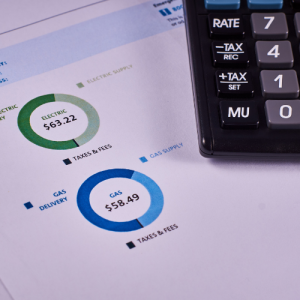Past Due Utility Bills and Bankruptcy Explained
When an individual files for bankruptcy protection, they commonly do so by filing with Chapter 7 of the bankruptcy code. This affords the opportunity for liquidation, which provides relief to people regardless of the overall amount of money they owe or (in most cases) who they owe it to.
If you’re going through this process alone, you may find yourself in a situation where you aren’t sure which debts are dischargeable and which ones are not. Likewise, you may understandably want to prioritize payments to certain creditors, but to do so you must avoid what might appear to be preferential treatment. And where, exactly, do past due utility bills fall into all of this?
While bankruptcy itself can be complicated, this particular element of it is relatively straightforward. If you want to properly account for past due utility bills before, during, and after the bankruptcy process, there are a few key things you’ll want to keep in mind.
What You Need to Know About Utility Bills and Bankruptcy: An Overview
For the sake of discussion, know that “utility bills” are formally defined as any bills pertaining to essential services. Your home’s electrical bill, along with any gas and water service that you have, would fall into this category. Other bills that would include but are not limited to ones like sewage, trash, and landline telephone. 
One thing that a lot of people don’t realize is that when you file for bankruptcy protection (in this case, Chapter 7), all of the aforementioned utility bills will be considered a form of unsecured debt. This means that they are all lumped into the same category as things like credit cards and personal loans.
If you file for Chapter 13 bankruptcy, your utility bills are still unsecured debt – only now you’ll be dealing with a repayment plan. This means that you will be paying what you can afford each month to pay all or a negotiated portion of those debts, including your utility bills.
Prior to filing for bankruptcy, these are the types of bills that you should be prioritizing when it comes to repayment. You should try to pay your water bill to keep that service running, for example, rather than a credit card if you must make a choice between the two.
If you’re on a repayment plan in Chapter 13 bankruptcy, you also want to avoid any of your decisions being seen as preferential treatment. So again, you would want to prioritize those essential bills like electrical service before anything else If and only if you must make a decision between the two.
The good news is that when you file for Chapter 7 bankruptcy, all of your unsecured debts up to the time that you make that filing are included in the proceedings. This means that if you were six months behind on your electrical bill from January to June, and you filed for bankruptcy in June, the entire debt would be discharged along with the rest of your unsecured debt. Once the bankruptcy process is finished, the rest of that debt will be gone.
Note that bankruptcy of any type is not a financial “get out of jail free” card. There are some very real ramifications associated with it, like the fact that it will stay on your credit history for years and can make it difficult (if not impossible) to get things like a loan or a mortgage, at least in the short-term.
But still, for most people who have found themselves significantly behind, filing for bankruptcy can be an efficient way to get that “fresh start” they’ve been wanting so that past due utility bills aren’t the types of things that they have to spend time worrying about any longer.
Overall, it’s essential to realize that bankruptcy can be a long and complicated process with a lot of moving parts – but it’s also one that you do not have to travel alone. At Clark & Washington, LLC., our team has years of combined experience as Georgia’s largest bankruptcy filer. We know exactly how to see this process through to the best possible conclusion, allowing you to rest easy knowing that your financial future is finally in good hands.
If you’re interested in finding out more information about what happens with past due utility bills and bankruptcy, or if you’re just eager to get this process started for yourself or a loved one, please don’t delay – contact Clark & Washington, LLC today.



